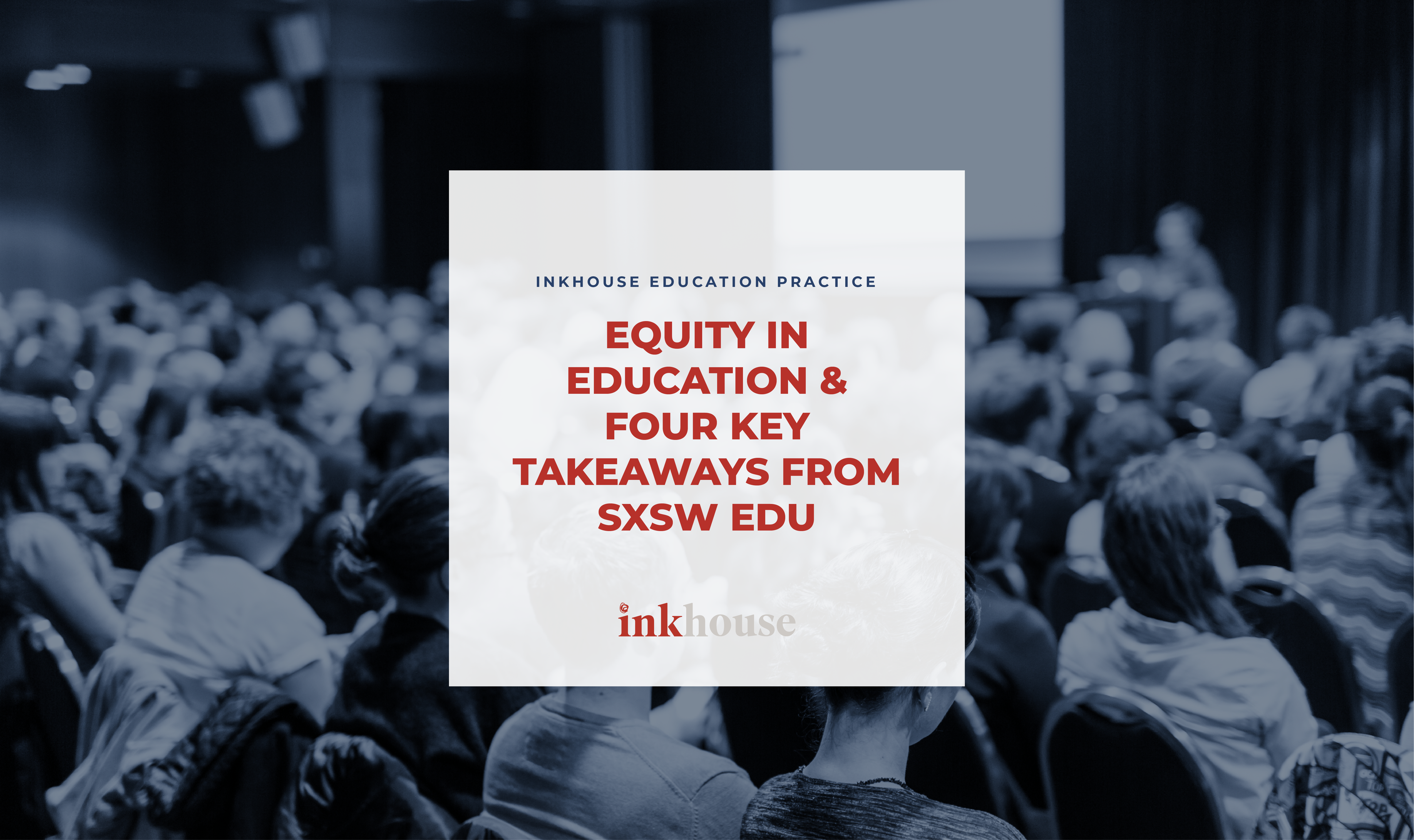Equity in Education & Four Key Takeaways from SXSW EDU
Mar 26, 2021 Danielle Laurion
SXSW EDU 2021, like everything else this past year, felt different. Rather than enjoying all that Austin has to offer, we Zoomed into pre-recorded sessions from where we work and sit every day—our homes. Despite this loneliness of “attending” the conference, SXSW EDU captured all that has impacted education this past year during the pandemic and the hopes for the future.
Arguably, education has seen some of the greatest disruptions due to COVID-19, with millions of students out of school, teachers struggling to use technology and reach their students, and districts and policymakers quickly realizing that going back to “normal” isn’t good enough anymore. We need to improve the education system, not go back to what it was.
Below are key themes that were discussed and trends that are shaping the future of education. One major theme was equity and how the pandemic has illuminated the vast inequities that have always existed in the US education system.
Education journalists shift in reporting the news
The panel: COVID-19's Disruption to Education Journalism featured The Hechinger Report Editor in Chief Liz Willen; Forbes Director of Editorial Operations Caroline Howard; USA Today Education Enterprise Reporter Chris Quintana; and was moderated by Whiteboard Advisors SVP Jenna Talbot. One of the biggest takeaways was the way in which reporters are getting and reporting their stories. Usually taking a boots-on-the-ground approach and going directly to classrooms, campuses and visiting families to capture the voices across the nation, journalists have had to shift the way they reach sources. For example, Quintana shared that he now relies largely on students DMing him on Twitter. Stories that they want to highlight center around the impact of the learning loss on students (especially on students of color), what reopening will look like, changes the Biden administration will bring and whether alterations that have been made this year will actually stick, particularly from an equity standpoint. Lastly, newsletter popularity also grew exponentially this past year and is something Howard’s team at Forbes is planning to do more often.
The typical college student has changed
In the panels The ‘Kids’ Aren't Alright: Reinventing Higher Ed and How Universities Can Power the Future of Work a main topic of discussion was that college students are no longer only “four-year college students.” Many of them are working learners meaning they’re working part- or full-time, are pursuing community college credits or are even parents themselves. Most aren’t full-time college students and yet the system isn’t designed to enable the flexibility and hybrid-approach these students require. Policies and infrastructure need to change to make it easier for students to move in and out of learning and work. Higher education programming also needs to evolve to be more focused on building skills that students will need in the workforce. From emotional intelligence to critical thinking, the burden of acquiring skills is often on students to tack onto their schedules. The panelists also discussed how institutions and employers need to do more to help prepare students for today’s workplace and how models need to shift to lighten the load on students. The final question in The ‘Kids’ Aren't Alright: Reinventing Higher Ed asked the panelists to think of another name for kids. My favorite was: “Earner Learners,” life-long learners and workers.
Removing bias from edtech
The rise in edtech has also opened doors for an increase in unconscious bias being designed into the technology. In the panel Can We Design Bias Out of EdTech? panelists discussed that the technology itself starts with the assumptions and norms of the people who design it. This is often white men. Lived experiences need to go into technology design in order to create representative and equitable platforms. Variances in dialect matter and if the platform isn’t designed to pick up on that, then instantly a portion of students aren’t being helped. Success is dependent on people’s access to the tools, and communities that have felt the greatest impact from the pandemic will suffer the most from learning loss. Tech can be a great equalizer, but if it’s not designed for the students it’s trying to help, it will only benefit a fraction of learners.
An investment in early education is an investment in our future
The disruption to our youngest learners (pre-K) has been a huge story as it not only impacts education, but a family’s child care. In Mission: Impossible? Successes in Online Pre-K the panelists covered everything from the scramble to setting up remote pre-K, the challenges of reaching families and the additional hurdle of educating and engaging parents. Working families have had to balance child care closures with distance learning, technological challenges and taking on an active role as “teacher.” Social emotional learning (SEL) is also incredibly important at this age and something that teachers and parents have struggled with in a remote and distanced learning environment. The need for accessible, high-quality child care will not only shape our future learners, but is also good for the economy as it helps parents stay in the workforce.
Education has been at the forefront of the pandemic and it will continue to be an area we pay attention to. If you’re interested in learning more about our education practice contact us at workwithus@inkhouse.com or subscribe to our weekly newsletter.






